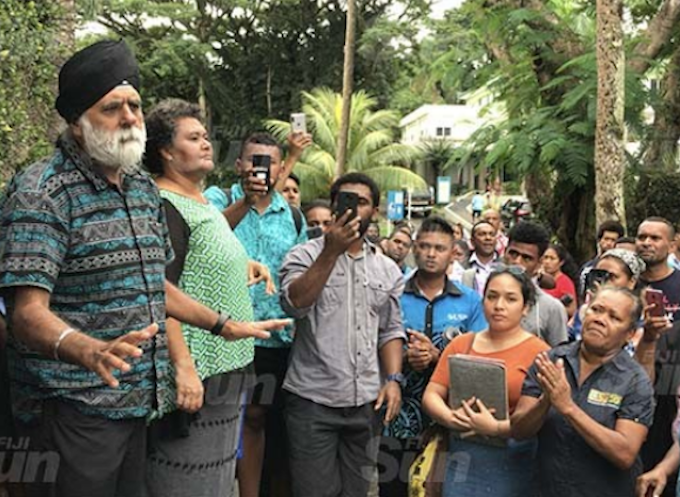
PACIFIC PANDEMIC DIARY: By David Robie
What an irony. The 12-nation regional University of the South Pacific that prides itself on its pan-Pacific culture has unwittingly suffered collateral damage in the wake of the covid-19 coronavirus pandemic in the Pacific.
Although the Pacific has largely fended off serious incursions by the virus with the Cook Islands and Vanuatu among those ticked as totally covid-free, the paranoia about infection has allowed growing doses of authoritarianism to seep into the region.
This theme was picked up by incoming chancellor of the university, Nauru’s President Lionel Rouwen Aingimea, an articulate and passionate alumni champion of USP and who is also a lawyer.
READ MORE: The USP legacy – ‘Celebrating the Pacific, shaping its future’: 50 years of achievement

In a letter last Monday to Fiji’s controversial pro-chancellor Winston Thompson, who chairs USP Council, and who has been driving the current leadership crisis, President Aingimea made a widely reported allegation that a small group was seeking to “hijack” the institution and putting its future in jeopardy. He criticised a “disregard for due process”.
Some council members and behind-the-scenes advisers have gone further. They argue that the host country Fiji has taken advantage of covid-19 lockdowns and health security restrictions on meetings to take a grip on the leadership agenda in the last couple of months.
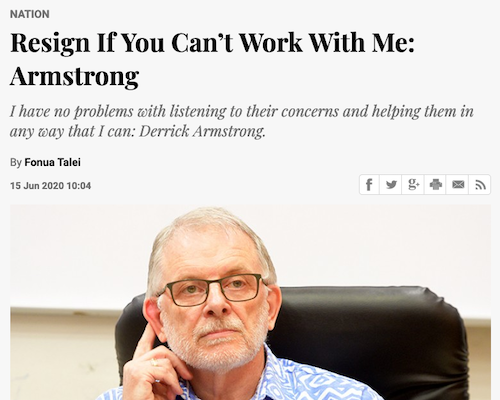
While newly appointed acting vice-chancellor Professor Derrick Armstrong says he has the support of senior management as he fills in for his suspended boss Professor Pal Ahluwalia (who was the original whistleblower on the alleged USP rorts business and is now facing tit-for-tat counter allegations), statements from some key current and former staff suggest a different story.
Professor Armstrong told media that he gave senior staff the option of resigning if they felt “uncomfortable” working with him.
“Nobody has expressed that feeling to step down,” he said. But he has expressed disappointment that the staff and student associations have refused to meet with him.
Critics question his role as acting vice-chancellor, saying there is a conflict of interest because he was one of the people named among 33 complaints against Professor Ahluwalia.
The critics also challenge the “full privileges” claim over the vice-chancellor’s suspension when USP directives were given to “change the office door locks of the [vice-chancellor’s] office; the vice-chancellor’s USP email access was abruptly stopped, and USP security were sent to [the vice-chancellor’s] house to collect a laptop computer and mobile phone that were given to him for his use”.
One of the strongest and most passionate condemnations of the handling of the current crisis came at the weekend from Associate Professor Tarcisius Kabutaulaka, director of the Centre for Pacific Islands Studies at the University of Hawai’i Manoa, giving his personal view as a former student and staff member of USP.
He accused a small group of people of “selfishly and disrespectfully desecrating” this “sacred place of learning” for the Pacific which celebrated a half century two years ago.
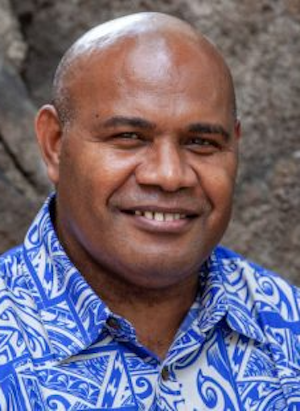
“USP was the place where we learned to navigate the academic ocean; where we tried out ideas; where we made mistakes and learned to correct them; where we met, got to know and befriend people from other parts of Oceania; where we first fell in love and made love for the first time; where we first experienced heartbreaks; where some met our spouses; where some had our first child and buried their umbilical cord,” Kabutaulaka wrote.
A petition from former staff and alumni declares they are “dismayed” at how the actions of pro-chancellor Thompson and his colleagues in the Fiji-based executive committee have brought the university “into disrepute”.
The petitioners say they are “deeply mindful of the contribution of scores of staff and thousands of graduates of USP towards building its reputation in Oceania and beyond as well as the massive cooperative regional effort by the governments and people of its 12 member states, and Australia and New Zealand in maintaining the regional institution and its numerous campuses”.
They also say they are “disturbed at the failure” of Thompson to comply with a May 2019 directive that he works “cooperatively and in harmony” with Ahluwalia for the good of the university.
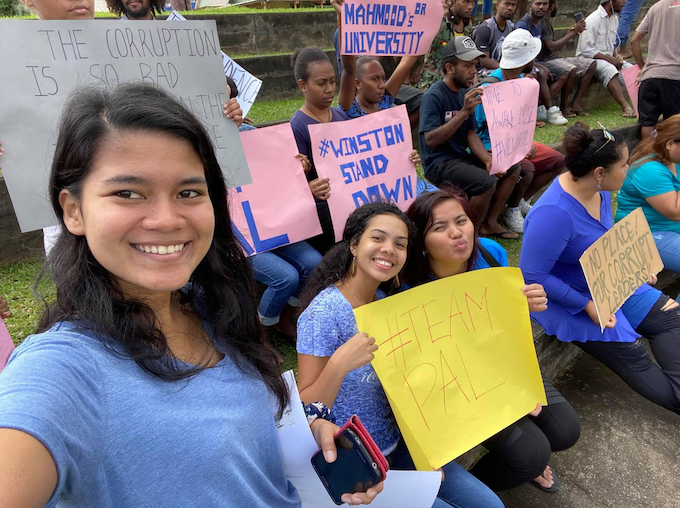
The petition includes calls for:
• The reinstatement of Professor Ahluwalia as vice-chancellor
• Public release of the BDO Report [forensic accountants inquiry, completed last August] into the allegations against the previous university administration and a report by a three-person investigating commission; and
• Examination of whether the pro-chancellor has followed due process. And if he is found to have not followed due process, not delivered natural justice, and undermined the vice-chancellor then the council should request his resignation and appoint a new chair.
President Aingimea clearly is not keen on this critical USP Council meeting with many participants around the region taking part virtually left solely to the control of the Fiji-based executive committee.
He proposed that an independent organisation such as DFAT (Australia) or MFAT (New Zealand) organise the special meeting rather than having any USP staff support do the job.
“For transparency and security reasons, the Zoom meeting should not be compromised by having USP staff supporting this meeting,” he said in a letter on Friday, and he also prefers the meeting to take place this Wednesday rather than next Friday.
As Professor Kabutaulaka says, he hopes the USP Council will sort out the crisis with “diligence, intelligence and wisdom”.
https://www.fijitimes.com/usp-saga-aingimea-proposes-independent-organisation-for-proposed-meeting/
Covid and Papuan political prisoners
Meanwhile, one of the major covid issues still facing the Pacific is the plight of Papuan political prisoners.
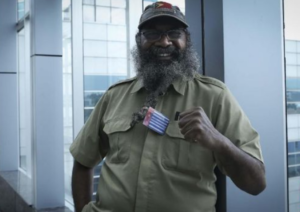
Former prisoner Filep Karma has criticised the failure of President Joko “Jokowi” Widodo to honour his pledge five years ago to free all Papuan political prisoners during his administration.
Karma says Widodo made this pledge to five of his fellow political prisoners in Jayapura, Papua when they were released in 2015.
However, now the number of Papuan political prisoners in jail has instead grown to 46 – with Widodo into his second presidential term – and there are growing fears about their plight as Indonesian covid-19 infections continue to rise sharply. The Indonesian human rights advocacy group Tapol has also beeen pushing the issue strongly.
According to the latest Johns Hopkins University statistics, 38,277 people have been infected and 2134 have died in Indonesia (including Papua).
Dr David Robie is an alumnus and a former head of journalism of the University of the South Pacific.














































